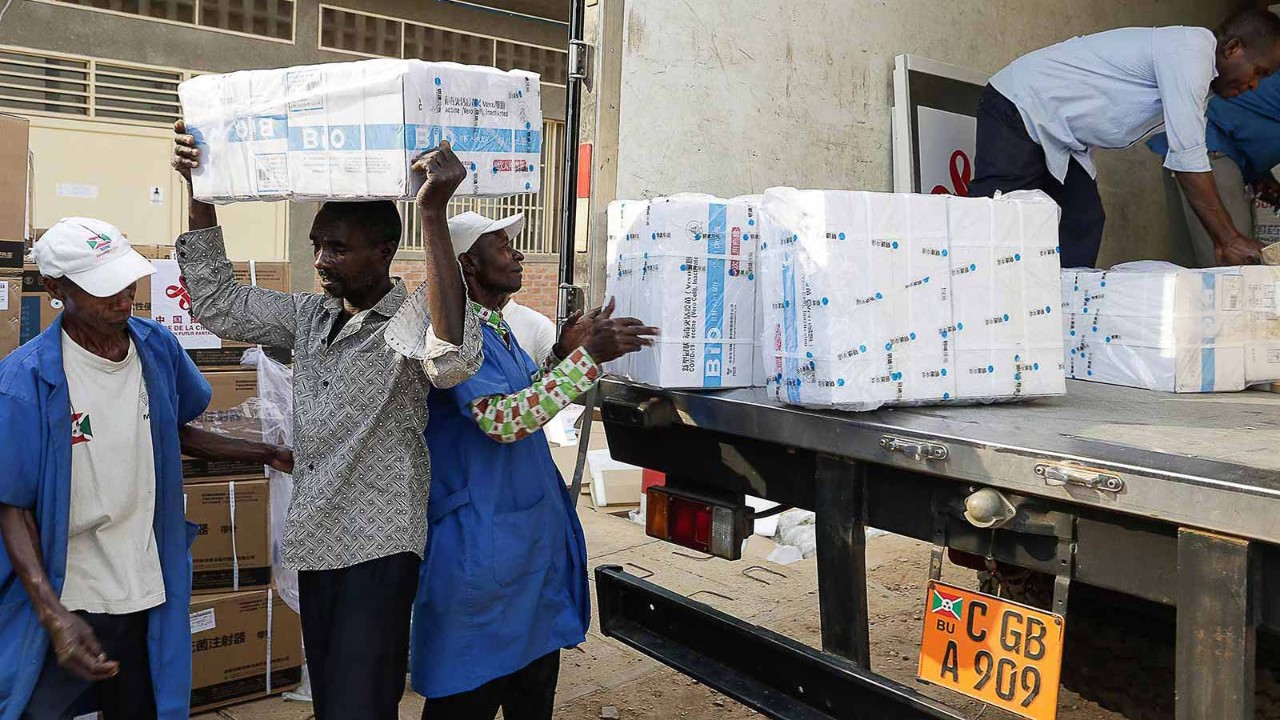
When it comes to problem-solving, self-interest can be a remarkably powerful tool. Why, then, should the pandemic be any different?
Earlier this year, one business, South African telecoms giant MTN, showed just what is possible by donating US$25m to buy seven million Covid vaccines for healthcare workers across sub-Saharan Africa. Sure, it’s a drop in the ocean given that Africa has a population of 1.3 billion, but then MTN is not the only business on the continent that stands to benefit extensively from economic recovery and a return to the full-blooded pursuit of growth.
Stunted growth
Because growth is where the warning flags are flying for sub-Saharan Africa. The October 2021 edition of the International Monetary Fund’s biannual World Economic Outlook projects the GDP growth of sub-Saharan Africa at 3.7% in 2021 (3.8% in 2022). Meanwhile the 2021 growth projections for Asia, Europe, Middle East & Central Asia, North America and South America are 6.5%, 5.4%, 4.1%, 6.0% and 6.3% respectively. Of all the regions of the world then, sub-Saharan Africa is projected to grow least this year.
One set of figures in the World Economic Outlook report brings home most clearly the poor economic performance of sub-Saharan Africa: real per capita output. Of all the regions of the world, sub-Saharan Africa has the lowest projected growth in per capita output in 2021: 1.2%, just a quarter of the global average of 4.8%. In other words, sub-Saharan Africa is expected to produce one-quarter per person of what the average person in the world is expected to produce this year compared with last year. Less production means fewer available resources to meet needs.

As the pandemic recedes, vaccination, which will help determine the speed of economic recovery, becomes another area of inequality
The Covid-19 pandemic is one of the principal reasons for these latest poor output projections for sub-Saharan Africa. While the region may not have suffered as many cases as other parts of the world, its impact has been felt more severely than in other regions. The poor, of course, have suffered more than the rich from the effects of lockdowns and halts in economic activity occasioned by the pandemic.
Disproportionate
The large informal economic sector in sub-Saharan Africa suffered disproportionately from actions taken to curb the spread of the virus. Artisans, roadside vendors, labourers, and all the other low-income workers who make up such a large part of sub-Saharan Africa economies could not go out to work. As a result, many lost their jobs and their livelihoods. Vulnerable groups such as women, unskilled workers and youths were the most affected, as millions were thrown into poverty by the pandemic.
In many parts of the world, governments provided citizens with support in one way or another to help cushion the impact of the pandemic. In sub-Saharan Africa, most did not – even in those countries that did offer support, it was grossly inadequate and far lower than in other parts of the world.
The reason for this is, of course, simple: governments in sub-Saharan Africa cannot afford to offer more. As a result, large swathes of people across the region had to go through the pandemic without help, having lost their businesses and sources of income. Many are yet to recover, and indeed may never recover, what was lost.
Yet as the pandemic recedes, vaccination, which will help determine the speed of economic recovery, becomes another area of inequality. Nations with mature economies have put at least one shot in the arms of about 70% of their populations; in Africa the figure stands at about 12.5%. The low level of vaccination is not due to vaccine hesitancy as in the rich world, but to low levels of availability.
Vaccine donations
Many countries have made vaccine donations. According to the Duke Global Health Innovation Center’s Launch and Scale Speedometer, as at 29 October, just over two billion doses of vaccines had been donated, with Africa receiving about 90 million (this number excludes doses under the Covax facility, which are much higher).
The donations were mostly made by countries, yet MTN’s donation shows there is another way forward too. With Covid conspiracy theories seemingly running riot around the world, tech companies have every reason to put their weight behind objective science-based solution of vaccine programmes. MTN’s donation was partly inspired by a determination to counter the baseless speculation of conspiracy theorists that 5G comms technology spreads Covid.
If more companies in sub-Saharan Africa gave vaccine procurement and distribution the same shot as MTN has, it could help bridge the gap between the need and the donations. Governments could further incentivise such initiatives by offering tax breaks.
If we had all hands on deck in this way, sub-Saharan Africa could hit the target of 70% vaccination, hopefully allowing them to fully open their economies and improve their lot. Accountants have a role to play in getting their companies to pay attention and get involved. This way the economies of sub-Saharan Africa can get back to fast growth and everyone, including these donor companies, will be the better for it. If that were the case, the October 2022 World Economic Outlook just might have a better sub-Saharan Africa story to tell.

